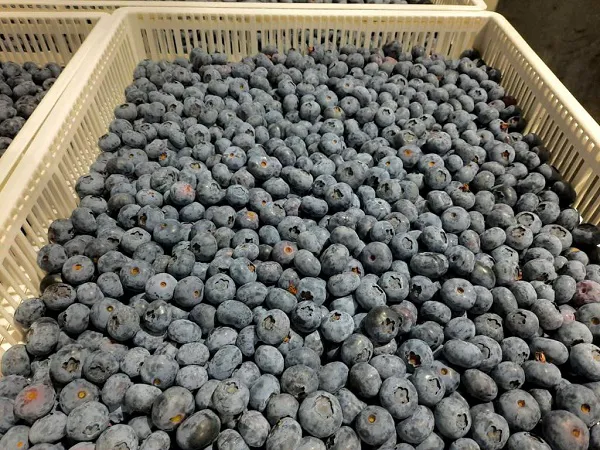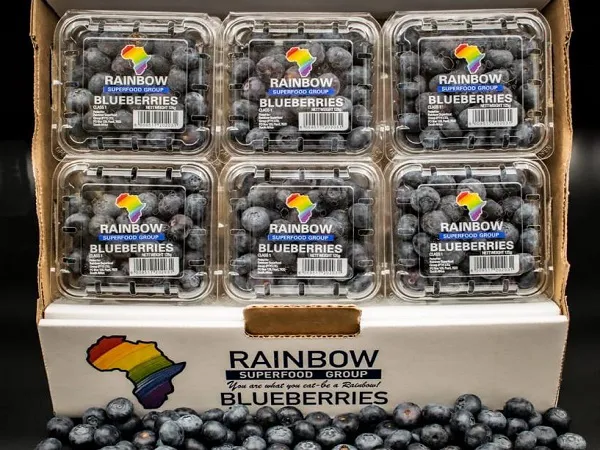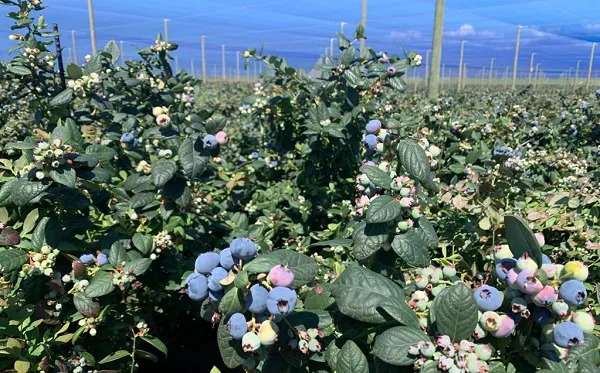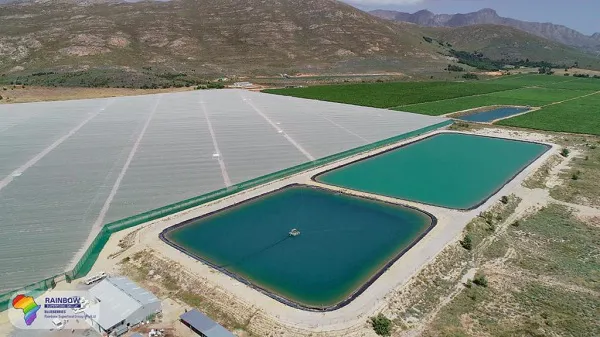Rainbow Superfood’s blueberry farms in Rawsonville and Lambertsbaai in the Western Cape are commencing the harvest at a time when prices are slightly improving, after a dreadful season in which growers have been selling their blueberries at far below cost price just to keep programmes going.
In both Europe and South East Asia (Malaysia, Singapore, Hong Kong) South Africa was “smothered” by Peru this season, says Tiaan Rossouw, managing director of Rainbow Superfoods.
He observes that in South East Asia buyers seem to be predominantly price-driven and they prefer lower-priced Peruvian blueberries to South African berries.
The good news is that Peru is finishing and according to reports, Chile might not be sending as much to Europe.

It’s been a very poor season price-wise, he says.
“I’ve been shocked by the prices at which some guys were selling their blueberries. And just a few years ago, they were getting four or five times this. Most South African blueberry producers supplied into the main marketing window that’s now ending. We keep going a bit longer, into January.”
Western Cape quality problems puzzle producers
Quality problems on Western Cape blueberries, for instance soft arrivals from previously sound blueberry blocks, are puzzling the blueberry industry.
“From what I hear, packouts were very poor, even here in the Western Cape which I cannot understand since we had good growing conditions, we didn’t have a heatwave like the guys in the north had in September.”
Intakes for the frozen sector was stopped last week when Euroberry announced they had received 3,000 tonnes of blueberries and would accept no more.
“We have been fortunate, we have had really good quality so far, but the price is just not there,” he says. “The price is about 1.50 euro on a carton lower than last year, which was already a low price. On air freight the price is US$3 lower than the lowest it has ever been.”

He says that airfreight to the East and also to Middle East killed them this season.
“It’s probably around 20% up on last year. And it feels like container rates are again higher. Container rates are around US$10,000 at the moment.”
Zimbabwe’s extended campaign complicated South Africa’s start
The season already derailed early on this year, he observes, when Zimbabwean blueberry growers decided to extend their season after disappointing early returns.
Rainbow Superfood supplies blueberries sourced in Zimbabwe around week 15 but this year, by weeks 38 to 40 he had buyers indicating their preference for South African berries.
“Zimbabwe still has a window but guys have started realizing there’s not going to be something like a good window. Usually Zimbabwean farms picked 60 to 70% of their berries early in the season and it works out well, because the first 60 to 70% usually have great quality. Then they stop and they start pruning, then their returns have been sufficient. Their overhead costs are much lower in Zimbabwe than here and most of them are geared to pack on-farm.”
This year early returns were disappointing and they extended their blueberry campaign, to the detriment of the early South African season.

“The price will probably never be lower than it is now”
In hindsight the intense expansion into blueberries in South Africa, still continuing apace last year, was probably not the wisest decision, he observes.
“In two years there’ll be even more blueberries on the market and I have to say I don’t know how blueberry farmers are going to survive. When I make the sums it’s just not viable. The price will probably never go lower than it is now.”
Growers are selling just to cover the cost of sales, and they're barely covering the costs of production. On a carton, sales prices are R50 (2.8 euros) below breakeven point.
 Rainbow Superfood's farm in Rawsonville, Western Cape (photos supplied)
Rainbow Superfood's farm in Rawsonville, Western Cape (photos supplied)
The price will eventually recover, he thinks, but next year will be a repeat of this one.
He maintains that fundamental change will have to come from logistics providers and consumers, and across all crops, not only blueberries, “otherwise there aren’t good times ahead”.
Purely price-driven buyers and consumers are speeding the demise of the growers. As it is, farms will probably start laying off workers.
He estimates a fair price back in the packhouse to be R70 (3.9 euros) per kilogram, before transport costs, for punnets (it would be a bit less for bulk) for a farmer not paying back a loan. Loan repayments would factor in another R10 to his suggestion for a fair price. For more information:
For more information:
Tiaan Rossouw
Rainbow Superfood
Tel: +27 61 586 5047
Email: [email protected]
